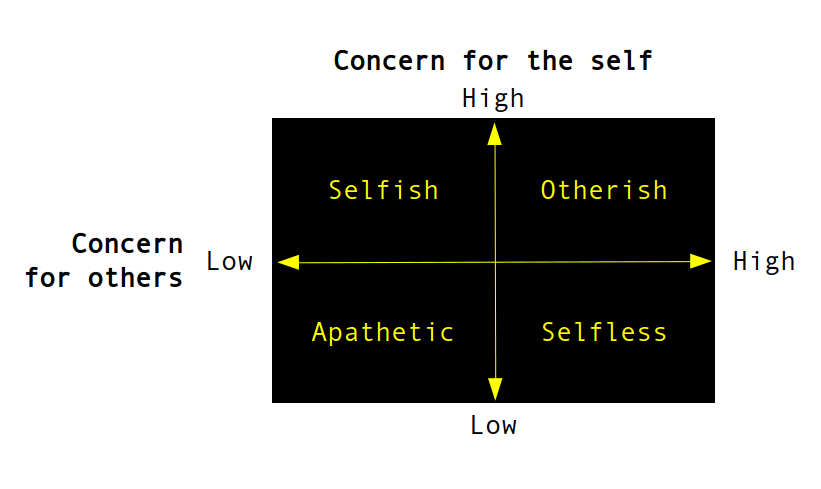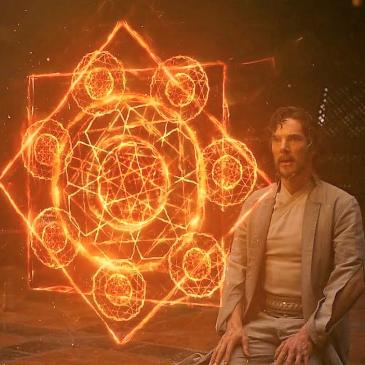
Note: spoilers for Thor (the first movie) ahead…
When we first meet Thor, we find our thunderous hero to be more than a little brash, prideful, and arrogant. In fact, if anyone else were as arrogant as him, they’d surely be unable to live up to their boasts. But Thor is the god of thunder, so he’s able to back up his words with solid results on the battlefield. No one doubts his skill as a warrior – but it’s fair to say that all the success and fame has gone to his head.
Whether you’re a god or a mortal, if you live your life this way, something will eventually go wrong. And for Thor, Prince of Asgard and next in line for the throne, something went catastrophically wrong. No, I’m not talking about the blonde eyebrows. I’m referring to his thoughtless, hot-headed arrogance which almost started a war with the frost giants.
Such a war could have led to massive death and destruction on both sides. It was not the decision a wise king would make. So, Odin deemed Thor unworthy of the throne of Asgard, strips him of his powers, and exiles him to Earth, in the hope that he’ll learn the value of humility.
They say pride comes before a fall, and for Thor, it’s a long way down – both figuratively and literally.
What is Humility?
There is a general idea that humility means weakness and low status. Humility is the claim of the beggar – “Please sir, I am but a humble… whatever.” Humble people are seen as meek, unassuming, and unworthy.
So why would Odin want Thor to learn some humility, in order to become worthy again?
Well, it all depends on how you define humility. This “low self-regard” version of humility hasn’t been used in all times and places (it seems like it became more common due to Christianity), and it cannot be what Odin meant. Odin probably thought of humility more like modern psychologists do:
“To be humble is not to have a low opinion of oneself, it is to have an accurate opinion of oneself. It is the ability to keep one’s talents and accomplishments in perspective, to have a sense of self-acceptance, and understanding of one’s imperfections, and to be free from arrogance and low self-esteem.”
– Norvin Richards
Now that sounds more like it! That’s a fitting state for anyone to aim for, whether you’re in-line for a throne or not.
According to this perspective, you be both humble and confident at the same time. In fact, you cannot be truly confident without humility. Here’s why.
You be the judge
Being humble means you don’t feel the need to overstate or brag about your abilities or achievements. You are secure with yourself, comfortable in your own skin.
From this point of view, being humble portrays a greater strength of character than being a braggart, because you don’t need the opinions of others to give you self-esteem – you generate your own self-esteem.
Let’s say you’re talking to someone, and they say they like your shirt. A humble response might be to simply thank them and move on with the conversation. But you might be tempted to brag, perhaps in an obvious way, “Yeah, I’m earning $80k now so I can afford the good stuff”, or maybe in a subtle way, “Yeah, I have two more like it at home.”
This works the other way round – if someone says they don’t like your shirt, the humble response might be to make a joke, or again maybe to simply thank them and move on with the conversation. But if you’re not humble, again, you might be tempted to brag, or to defend yourself – “I have a better shirt at home, I just didn’t wear it today”.
You might think that by bragging like this, you’re impressing the other person, or somehow deflecting their negative opinion of you. But in fact, you’re doing the opposite. No matter how impressive the thing you just bragged about, the fact that you felt the need to brag about it lowers your status relative to them.
Why? It’s all down to what you’re subconsciously communicating. Your words are saying “I have a better shirt at home”, but on a non-verbal level you’re saying “Your opinion matters to me. I need you to have a good opinion of me in order for me to feel good about myself. Here is a fact that I hope you will find impressive. Please like and respect me.”
This doesn’t mean that self-belief or confidence are bad things. The point is that needing people to think of you in a particular way is a sign that you lack self-belief and confidence.
Believing your over-inflated opinion of yourself

Bragging has another pitfall. If you keep putting out a false image of yourself, then like Thor, you might eventually start to believe it!
Now, there is a time for inflated self-belief – you might have heard the term “fake it ‘till you make it”. This can be a useful strategy in many situations, but it applies when self-belief can have an impact on the outcome. For example, if you have to give a speech and you’re worried about it, then developing the belief that you’re a great public speaker might help. Likewise, many sports legends have incredible self-belief, because this is what drives them to keep training and competing.
But if you’re in a situation where your beliefs have no influence on the outcome (such as the complex dynamics and consequences of starting a war with another nation), then fake it ‘till you make it will only introduce bias into your decision-making process.
The three keys to humility
According to psychologists Shane Lopez and C. R. Snyder, there are three key aspects of humility:
- An accurate assessment of yourself
- An ability to acknowledge your limitations
- A forgetting of the self
Accurate assessment of yourself
As we’ve learned, humility means making an honest assessment of yourself, and being comfortable with that.
This is actually the best way to improve. If you believe you’re a much better football player than you actually are, you might not spend time working on basic skills, because you think you’re beyond them. So an inflated opinion of yourself can prevent you from doing what you need to do to make your vision a reality.
With an honest assessment, you can chart a path from where you are now to where you want to be. You have self-belief that you can get there, not a false belief that you are already there.
But what if you actually are genuinely awesome? What if you really are a virtuoso guitar player, amazing painter, or world-class eyebrow dyer? Well, you can accept that this is true without letting it go to your head, without believing that you are morally superior or more deserving of your abilities than anyone else.
As an example, think of whoever the top basketball player is at the time you read this. He works hard, to be sure, but he put no work into developing his height, or athletic potential. People will say “He was born to play basketball”. Well then, that makes him extremely lucky to have been born in the tiny window of human history in which basketball exists!
We see that Thor has internalised this way of thinking by the events of The Avengers Assemble:
Loki: The humans slaughter each other in droves, while you idly threat. I mean to rule them. And why should I not?
Thor: You think yourself above them?
Loki: Well, yes.
Thor: Then you miss the truth of ruling, brother. A throne would suit you ill.
Of course, Thor is aware of his physical superiority over humans (he does believe he is the strongest Avenger, after all). But he has come to realise that even being a god or a king, does not make him better than anyone else, in the sense of being a “better person”, or morally superior.
Acknowledging limitations
The second key aspect of humility is the ability to acknowledge your mistakes, limitations, and gaps in knowledge.
It is very hard to admit we did something wrong. The bigger the mistake, the harder it is to admit. We lie, we change the subject, or we simply don’t speak up when we could. I do it, you do it, everyone does it – so first of all, we shouldn’t feel bad about it. But, we should try to avoid it. To do that, let’s think about why we don’t acknowledge our limitations in the first place.
The motivation for this is very similar to the motivation for bragging. We project an image of ourselves, and we want other people to see this image instead of our real selves. This image typically involves not being the sort of person who has weaknesses or limitations!
With humility, we are able to acknowledge limitations and mistakes, both to ourselves and others, because there is no image that we are projecting. We are comfortable projecting ourselves as we actually are. We think that this will make us appear weaker, but on some level, people understand that acknowledging limitations takes guts. There’s a strength in this that people respect.
Acknowledging limitations is also important to growing as people. If we can’t admit where the gaps in our skills and knowledge are, we can’t fill those gaps. The Greek philosopher Socrates believed this – he said that true wisdom can only be achieved by knowing and accepting what we do not know. And Thor came to believe it too, as we see at the end of the film:
Odin: You will be a wise king.
Thor: I will never be a wiser king than you. Or a better father. I have much to learn, I know that now.
Self-forgetting
I’m not sure what you’d call the opposite of humility. Inhumility? Narcissism maybe? But whatever it is, it involves an unhealthy preoccupation with the self.
Humble people release that preoccupation. They don’t put themselves at the centre of their own world, and because of that, there’s less of a need to brag or to project a particular self-image. Instead, they put more focus on other people.
Now, this doesn’t mean that you only focus on other people. You might think that being self-focused and being other-focused are at opposite ends of the same scale, but research shows this isn’t the case. According to organisational psychologist Adam Grant, they are actually independent (he discusses this in his book, Give and Take). See below:

The top left quadrant is where we find Thor at the beginning of his first movie – focused on himself, with little space for others. All the problems we’ve been discussing up to now are found in this quadrant.
The bottom right is selflessness – high focus on others, but low focus on the self. This might seem noble, but it’s actually a bad strategy. If you devote all your time to others, you’ll become a doormat, and you’ll burn out. You need to pay attention to your own needs too.
The bottom left is apathy. There is no focus on yourself, nor on others. This is where people with conditions like depression often end up, where there is a sense of numbness or disconnection with the world around them.
The best approach is to be in the the top-right quadrant – to be otherish. You still pay attention to your own needs, but you don’t put yourself at the centre of your entire world. You spend time helping other people. By the end of the movie, we find Thor in this quadrant. He was ready to sacrifice even his own life in order to save others – but only when it became clear to him that there was no other way. This was the kicker for his return to worthiness, and after doing this it was Hammer Time once again.
How to develop humility

So that’s what humility is, and why it’s beneficial to us. Now let’s go through a few ways we can develop it.
Self-monitoring
The first step in almost any personal change is going to be developing self-awareness. To get that, you need to watch yourself – we call this self-monitoring.
I know it sounds weird – I just defined humility as requiring self-forgetfulness, and now I’m saying we should increase our self-awareness. What’s that all about?
Well, there’s a difference between self-awareness (knowing who you are and how you act in different situations) and being self-focused (putting your needs above those of others, being selfish).
Self-monitoring, in this context, means watching yourself when you’re talking to other people. You can also do this retrospectively, by thinking back over an interactions you had today, yesterday, or some other recent time. Are there any things that you say because you were trying to elicit a positive judgement from the other person? Are there any things you say to make yourself look better in their eyes?
Of course, everyone brags sometimes, except maybe the Dalai Llama or something. The goal is to recognise when we do it, and do it less, especially when our intention was to look better in the eyes of others.
Develop your accurate assessment of yourself
We all have a tendency to portray a certain image to the outside world. This can differ depending on who we’re talking with – maybe you portray a certain image to your boss, a different one to your friends, and so on.
But deep down, you know what the reality is. Try to get in touch with that. Once you’ve started self-monitoring, you’ll start to see the images you’re presenting. Think about where you truly are, relative to these images. Then in the future, start portraying that true reality to the world, rather than the image.
If you need some help making an honest assessment of your strengths, there are a few tricks you can learn from Ryu and Ken.
Admit a mistake or limitation
This is a hard one! But as with many things, it can help to start small and build up. Think about something you’re not great at or struggle with, a limitation, weakness, or a gap in your knowledge that you feel you have. And then tell someone about it.
Of course, this isn’t something you need to regularly do. Being humble doesn’t mean you shout all your flaws from the rooftops. But it does mean you are able to admit limitations should the need ever arise. So if you can’t do that, it can help to get some practice in.
On top of all this, paradoxically, admitting flaws can actually make us more likeable. Psychologists call this the pratfall effect. In one study participants were split into two groups and each shown a video of a professor giving a talk. The talk was identical except for one thing – in one video, the professor spilt his coffee before giving the talk.
The participants then had to rate the professor for credibility and likeability. The credibility was the same between the two groups, but the people who saw the coffee spill rated the professor as more likeable. Similar results have been found when people admit a small flaw or weakness that they possess.
However, the researchers did find that this only applies because the professor had already established his credibility. The professor was an expert in his field, which gives him a position of status. Spilling some coffee just made him seem more human. If the speaker had not established credibility (for example, a comedian whose jokes weren’t landing), this pratfall effect doesn’t work.
Lose your powers
Try Odin’s approach with Thor – this could be considered the “tough love” approach. Put yourself in a position where you’re simply in over your head.
For example, sign up to learn a skill that you have no training or background in. An advanced approach is to do something that you’re not only bad at, but that can be embarrassing too – maybe public speaking, or singing karaoke.
The idea is to ween yourself off of positive feedback from other people. Learn to maintain a positive view of yourself regardless of how other people are acting towards you. To do that, put your self in difficult situations.
If you take this approach, you’ll probably need to use some other tools and techniques alongside it, to make sure you’re able to deal with the emotions you’ll experience during the process (such as meditation, for example).
Realise your malleability
One of the most important aspects to humility is the belief that you can change. A study in 2014 found that the people most likely to own up and accept responsibility after they made a mistake, were more likely to see themselves as malleable, changeable entities. The people most likely to avoid taking responsibility were those who see themselves as fixed: “I am what I am, and that’s that.”
This makes sense when you think it through. If you see yourself as fixed, then you’ll be much more vulnerable to the opinions of other people. If they criticise you, and you’re not able to change, then you’re stuck with that criticism for life. For that reason, people who see themselves as fixed often brag, boast, and become prideful – since criticism is more painful to them, they put a lot of effort into presenting a powerful image to others.
On the other hand, if you see yourself as malleable, then criticism is less powerful. Someone is simply criticising the way you are now. In a year’s time, you’ll have grown and evolved past this point anyway. On top of that, criticism can be helpful, as it can help you identify areas in which you can learn and grow.
Develop empathy
As you learned earlier, humility involves self-forgetfulness – you don’t put yourself at the centre of your whole universe. This is where empathy comes in. Professor of psychology Daryl R. Van Tongeren says empathy has two parts: the ability to take someone else’s perspective, and a concern for the well-being of others (known as empathic concern).
We’ll get into empathy more deeply in a future post, but for now here are two simple techniques you can use to develop it:
To develop perspective-taking: Think about a past interaction you had, or one you’ll have in the future. Try to think of the situation from the other person’s point of view. What were their needs and wants in the situation? What were their concerns? Why might their perspective be right?
To develop empathic concern: Take a five minute break in a place you won’t be disturbed. Close your eyes, and think of a person in your life. It can help to start with someone you have an uncomplicated, positive relationship with. Then, in your mind, wish that person well. Try to generate a feeling of compassion for them, where you genuinely do hope that this person is happy, healthy, and well. You can also try this with people you have a neutral relationship with, and then an advanced version is to try it with someone you don’t like.
Think of reasons you didn’t cause your success
Take something you’ve achieved, or something you do well. Then think of all the ways that you didn’t contribute to the outcome. How did you get lucky. So that example of the top basketball player from earlier, might make a like like:
- Possess the genetics for height
- Was born in a family that provided enough nutrition for those genes to be expressed
- Was born in a country rich enough to provide a stable food supply to said family
- Was born in a time when basketball exists
- People are willing to pay to watch basketball
- Family supported his early efforts to pursue sports
- High school coach was excellent and played a big role in building his self-belief
- Had other good players around him he could learn from
- ….and so on
Once again, this isn’t about being self-defeating or taking yourself out of the picture altogether. It’s about creating an accurate image of what happened. If you come up with a HUGE list of reasons, that’s good. Don’t feel bad that your own agency was taken out of the equation (because in that case, it wouldn’t have been there to begin with). Feel grateful that you had all these things line up for you. And try to give back in some way so that someone else can experience something similar.
Beware false humility and false modesty
Donald Trump once bragged about being “Much more humble that you would understand”, which seems somewhat contradictory at first glance. This contradiction is something philosophers and thinkers have debated throughout the centuries. Can a humble person know that they are humble? And if they do, does that not bring their humility into question?
I believe Michel Montaigne was right when he said “You can be humble out of pride”. Often, false humility involves a downplaying of achievements, to make it look like less work went into them that was actually the case.
For example, say someone cooks up an incredible gourmet meal for you, and you compliment them on it. They reply “Oh that, oh it was nothing, I just threw a few leftovers together, that’s all.”
Now it’s true, that sometimes people are simply uncomfortable with praise and the spotlight, and they say things like that to downplay the compliments. No problem with that. But sometimes, it’s just form of a brag – and note also how such comments are self-focused, rather than other focused (an other-focused reply might simply be “Oh thank you, I’m just glad you enjoyed it”.)
Here’s another way to look at this – imagine Thor wasn’t really prepared to sacrifice himself at the end of the movie. Instead, he was just bluffing. Would he have then regained his worthiness at that point? Nope! He would have just been obliterated by The Destroyer. End of movie, Loki wins.
So, don’t fall into the trap of making humility a point of pride. It’s not something you should strive to be, as a concept. Don’t self-identify as a humble person, and don’t say things to others to convey to others that you are humble.
Instead, just think of the components of humility:
- Do I have an accurate assessment of myself?
- Am I able to acknowledge limitations?
- Am I otherish – keeping others’ needs in mind as well as my own?
And the behaviours:
- Am I resisting the urge to brag or “one-up” other people?
- Am I using my empathy to see others’ perspectives?
- Do I see my abilities and personality as malleable?


